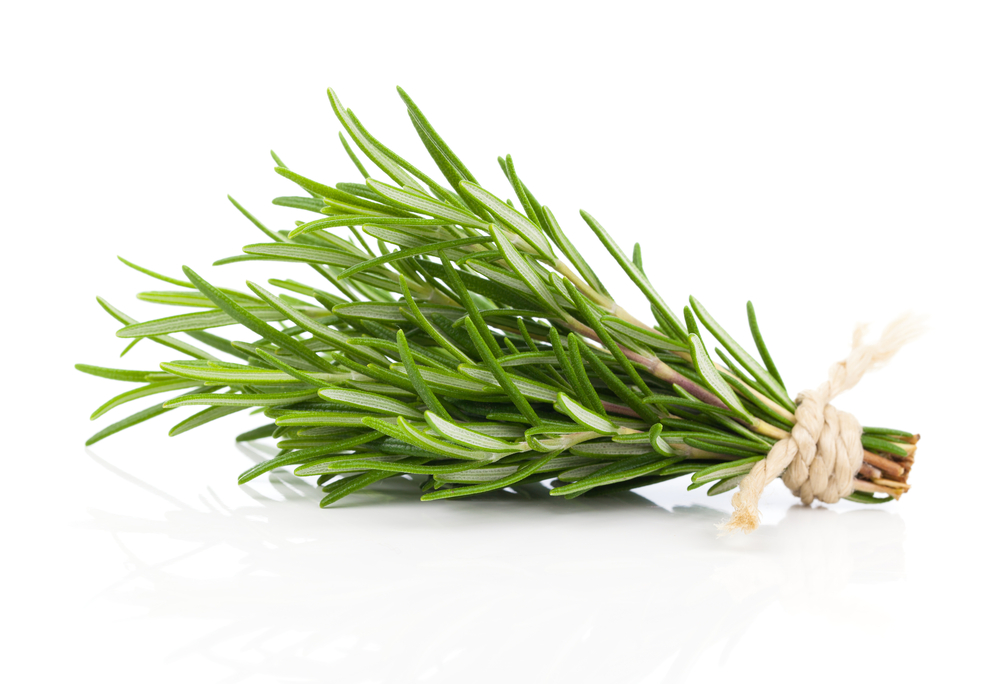The progression of Alzheimer’s disease can negatively impact the 5 senses. There are a variety of ways for caregivers to cope with these symptoms. While losing the sense of taste is not dangerous, it can cause seniors to consume less food on a daily basis.
To avoid malnutrition and weight loss, it’s important to be familiar with creative ways to assemble and cook breakfast, lunch, and dinner. Caregivers should monitor food consumption patterns to ensure the person they care for is getting enough nourishment. To help you get your family member excited about eating, we have compiled a list of spices and herbs that can be added to healthy meals that are assembled for senior citizens.
Table of Contents
14 Herbs for Dementia Treatment
We would be remiss if we didn’t mention that a dulled sense of smell will hinder taste as well. It’s similar to having a bad cold, your sense of smell will indirectly impact the ability to taste. I recall having a sinus infection a few years ago and going out to eat. I ordered my favorite dishes but was dismayed that I couldn’t taste anything! I loaded up my dishes with salt and pepper and lots of raw garlic. Anything to boost the flavor so that I could taste something. Needless to say, the experience wasn’t very enjoyable. It was then that I truly understood how important smell is to taste.
Using spices and herbs is a fast method to add flavor to the healthy meals you are assembling for senior citizens that have Alzheimer’ disease. Spices such as cumin and curry are strong in both taste and smell, and as a bonus, offer wonderful health benefits. The same holds true for herbs. Rosemary, lavender and mint all come with their own strong flavors, smells and benefits.
 1. Cinnamon
1. Cinnamon
Cinnamon has the highest antioxidant value of any spice. It has been shown to reduce inflammation and lower blood sugar and blood triglyceride levels. A large number of caregivers use cinnamon to cook delicious meals for senior citizens to alleviate nausea and to increase sensitivity to insulin. Including cinnamon in your diet for Alzheimer’s is an effortless way to burn a small amount of fat. It provides manganese, iron and calcium. Its antimicrobial properties can help extend the life of foods.
2. Basil
Basil has anti-inflammatory and antiviral properties and can help prevent osteoarthritis. It has been used in digestive disorders and is being studied for its anti-cancer properties. Though commonly used in Italian cooking, Basil is a versatile herb that can be added to practically anything. Fresh is always best, but dried is okay too as long as it is freshly dried.
Tips & Insights: Are There Lifestyle Changes I Can Make to Slow the Progression of Alzheimer’s Disease?
3. Arrowroot
Arrowroot is a starchy herb that is easy to keep on hand. It has an amazing thickening ability similar to cornstarch. This herb can be mixed with soups, dips, and bread when you are concocting meals for the eldery or middle aged adults. It is soothing and highly digestible so it is often used in treatment for conditions like Irritable Bowel Syndrome.
 4. Turmeric
4. Turmeric
Turmeric is a common ingredient in Indian foods. It’s a great addition to soups. Turmeric contains Curcumin, a cancer-fighting compound. It is more often taken medicinally in America for its ability to reduce inflammation and improve joints.
5. Garlic
Most households have garlic around in some form or another. Blend fresh cloves of garlic or powdered and minced garlic to incorporate flavor into healthy meals you are crafting for senior citizens. Garlic can be added to anything from eggs, tuna salad, to baked fish for dinner.
Sign Up For Our Memory Care Assisted Living Community
6. Dill Weed & Seed
Dill has antibacterial properties but is most known for its stomach settling ability (ever wonder why pregnant women crave pickles?). It contains a variety of nutrients that are mostly lost when heated to high temperatures. For this reason, it is best to use dill in uncooked recipes or in foods cooked at low temperatures.
Tips & Insights: What Types of Medical Conditions Are Commonly Misdiagnosed As Alzheimer’s Disease?
 7. Cayenne
7. Cayenne
Cayenne has many health benefits and can improve the absorption of other nutrients in foods. It has been shown to increase circulation and reduce the risk of heart problems. Though available in capsule form, it is also a great addition to many foods. In small amounts, it can be added to practically any dish, meat, vegetable or sauce.
8. Mint
Mint is a wonderful herb that is used in many places of the world, but is not as common in the United States. A straightforward way for caregivers to alleviate digestive troubles is to blend mint to beverages, meals, or desserts that are assembled for the elderly. Mint can be added to various types of meat dishes and dessert recipes.
9. Oregano
Oregano (and it’s milder cousin, Marjoram) features antiviral, antibacterial, anticancer and antibiotic characteristics. It is extremely high in antioxidants and has demonstrated antimicrobial properties against food-borne pathogens like Listeria.
10. Cumin
The second most widely used herb/spice in the world after black pepper, cumin provides a distinct and pleasant taste. Cumin has antimicrobial properties and has been used to reduce flatulence.
 11. Rosemary
11. Rosemary
Rosemary has a high concentration of the antioxidant carnosol and research shows it may be indirectly related to benefits in cancer treatment. Rosemary can be mixed with meals that are created for senior citizens to improve cholesterol levels.
12. Thyme
Thyme is a member of the mint family and contains thymol, a potent antioxidant and also the potent ingredient in Listerine mouthwash.
Tips & Insights: What Causes the Symptoms of Sundowning in Individuals With Dementia?
13. Curry Powder
Curry powder can have a wide variety of ingredients, but often contains turmeric, coriander, cumin, cinnamon, mustard powder, cayenne, ginger, garlic, nutmeg, fenugreek and a wide variety of peppers. With all these ingredients it has an amazing range of beneficial properties.
14. Lavender
Lavender essential oil helps your body produce three of the most powerful antioxidants, glutathione, catalase, and SOD within 22 hours of ingesting. It can also be used to alleviate nervousness and headaches. In addition, lavender can be used to combat digestive issues including flatulence, loss of appetite and nausea. Lavender is a popular aromatherapy oil, used to address insomnia, pain and anxiety.
 Use a Mixture of Spices to Make Meals Appetizing
Use a Mixture of Spices to Make Meals Appetizing
This is just a very small list of some of the most common spices and herbs that can be found in local markets. Depending on the area you live in, you might have access to a large number of spices. Experiment with flavors when preparing healthy meals for senior citizens that have Alzheimer’s disease. Almost all of these can be incorporated during any meal, including breakfast, lunch, or dinner. Add garlic and herbs to omelettes and scrambled eggs. Sprinkle cinnamon or nutmeg on sliced fruit and cereals.
These are probably dishes you are serving to your family member already. The same goes for beverages. Add herbs and spices to juices, lemonades, teas and even hot chocolate. My grandmother loved warm milk with fresh nutmeg grated on it; something her mother used to make for her. She found it calming and relaxing. And most importantly, it helped to trigger a memory and a feeling.
Taste and smell are both strongly associated with memory recollection. Even if it isn’t a specific memory of a place or an event, it stimulates a feeling. As adults, most of us still crave tomato soup and grilled cheese sandwiches. We may not be able to recall an exact episode of when we ate it, but it reminds us of childhood and probably a parent or grandparent.
The same holds true for people with Alzheimer’s disease. At the end of my grandmother’s life, she did not recognize any of her family. However, she could always find calm and comfort in her warm milk with nutmeg. If you’re struggling to prepare meals for a family member that has Alzheimer’s disease, give our team a call by phone at (630) 534-0886. The licensed dieticians at our Alzheimer’s and dementia care facility in Oakbrook Terrace specialize at crafting flavorful meals for individuals with dementia. We offer three healthy meals a day to residents in our community and promote the benefits of herbs and spices.
Tips & Insights: Ways to Respond to a Patient With Dementia That is Refusing Care



 4. Turmeric
4. Turmeric 7. Cayenne
7. Cayenne 11. Rosemary
11. Rosemary Use a Mixture of Spices to Make Meals Appetizing
Use a Mixture of Spices to Make Meals Appetizing